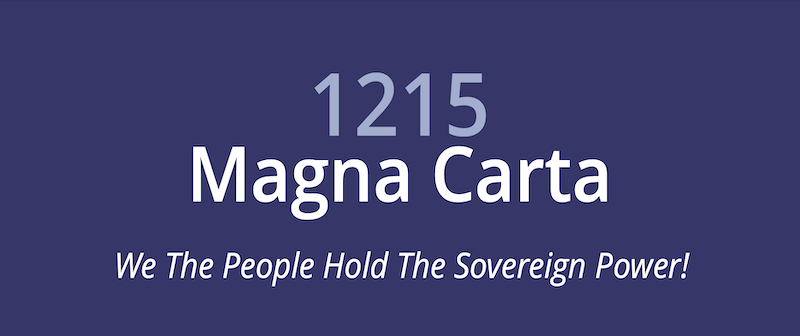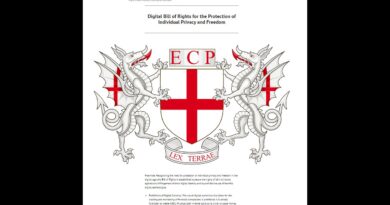Magna Carta1215
Magna Carta 1215
Magna Carta simply means ‘Great Charter’. It is the founding document of the British Constitution. Magna Carta was sealed by King John in 1215 after he agreed peace terms with his barons at Runnymede.
Magna Carta was the first document to put into writing the principle that the king and his government was not above the law. It sort to prevent the king from exploiting his power, and placed limits of royal authority by establishing law as a power in itself.
Forever Binding
Magna Carta 1215 is a forever binding document which cannot be repealed or altered by any parliament. It guarantees the rights of individuals, the right to justice and the right to a fair trial by jury.
The 800th anniversary of Magna Carta 1215 was commemorated by the UK and by the Queen in 2015 and coins were also minted in commemoration.
Contrary to common belief, our Sovereign and her government are there to govern us and not to rule us! Our government must govern within the constraint of our common law and the freedoms asserted to us by such law. Nothing can become law in this country if it falls outside of this simple constraint!
We the Sovereign People hold the Power
Article 61 (the security clause of Magna Carta) shows quite clearly that WE the PEOPLE hold the power in this country. The government can only govern with the consent of the people.
Parliament is not Sovereign, we the people are Sovereign. No Parliament has the authority under the Constitution to take or to transfer the people’s Sovereignty! Attempting to do so amounts to treason.
Act of Treason
The terms of the Treaty of Nice, which was being pushed through, by the then Prime Minister Tony Blair, represented an act of treason as the Treaty was a significant threat to the Sovereignty of the Realm. This was in addition to those already lost by successive governments including joining the EU in 1973.
The Invocation of Magna Carta Article 61
On 7th February 2001 the Barons petitioned the Queen to withhold her Royal Assent from any Parliamentary Bill which attempted to ratify the Treaty of Nice unless and until the people of the United Kingdom have given clear and specific approval to uphold and preserve the rights, freedoms and customs as set out in Magna Carta and the Declaration of Rights, which she swore before the nation to uphold and preserve in her Coronation Oath of June 1953. Under the constitutional protocol of the Magna Carta, the Queen had 40 days to reply.
Under the British Constitution, on 23rd March 2001, the Barons had no choice but to invoke Article 61 as the reply received from the Queen’s Office on the 39th day did not create redress for the treason being committed through the signing of the Treaty of Nice.
Role of the Police and the Armed Forces
Both the police and the armed forces swear an oath of allegiance to the Queen which has its origins in Magna Carta, 1215. As public servants, it is incumbent on both the police and the armed forces to stand under their Oath of Office to protect the Queen and her lawful subjects from harm, especially from acts of treason and to support the people in their stand against the criminally corrupt forces that are acting against the people.

